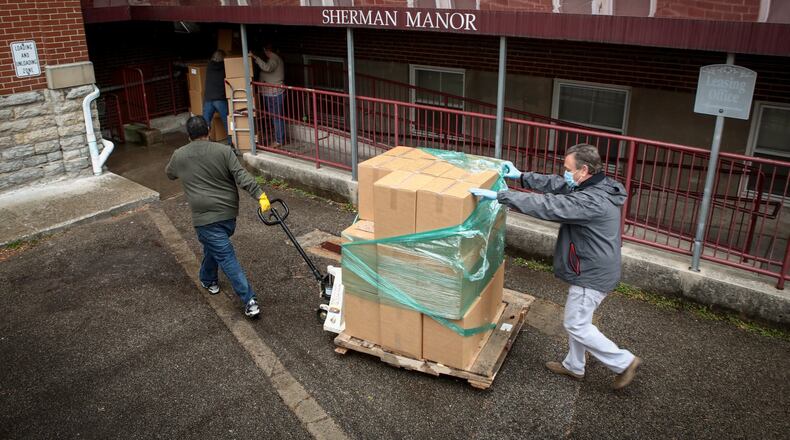Historically the commissioners have preferred the social services agencies not compete on the same ballots. County Administrator Judi Boyko said the two levies are critical, especially now with the coronavirus seriously impacting those most vulnerable.
“With COVID-19, impacts to these vulnerable citizens are exacerbated and the demand for services is heightened,” Boyko said. “The board is cognizant of and sensitive to the financial constraints many families and individuals are struggling with right now and leaves the decision to continue to care for our mentally ill and elderly citizens to the electorate.
Mental Health and Addiction Recovery Services Board (MHARS) Executive Director Scott Rasmus said the board needs more money than the 1-mill, $7.5 million levy brings because they are in deficit spending. He said inflation has ballooned costs 26 percent through the years but revenues have not increased.
RELATED: Butler County social services agencies to ask for levy renewals while aiding during coronavirus
“You’re going to say even with this levy passing you’re losing, you’re in deficit spending,” Rasmus told the county commissioners a few weeks ago. “The first thing we need to do before we can talk about anything else is to hold onto this levy.”
The MHARS Board oversees the county mental health and addiction system and provides funding, strategic planning, quality assurance and needs assessments for outside service providers. Rasmus said about one in every 10 residents (35,000) were “touched by our services” last year compared to about 28,000 in 2018. The opioid epidemic increased the numbers.
The MHARS levy expires next year but the board needs to also ask for additional money soon. Rasmus said if the levy fails, it can try again next year, but that doesn’t give them much cushion.
“When we hit the spring of 2022 we are at two months of reserves, which is below the board three-month minimum policy and we’d have to start cutting programs,” Rasmus said.
The Council on Aging manages the $10 million elderly services levy that provides programming so seniors can stay at home as long as possible, and the agency served 4,121 clients last year. It pays for services including transportation, meals, mental health, adult day services, housekeeping and repairs. The Elderly Service Program costs about $294 monthly, compared to $4,340 for nursing home care.
Ken Wilson, vice president of program operations, told the commissioners officials use other funding sources like insurance and Medicaid before tapping into levy funds.
“It is designed to keep seniors independent in their home where they’d like to be. It enables them to stay at home and be independent with dignity in the homes that they are familiar with, and with family and community they want to be with,” Wilson said. “It prevents costly and unnecessary nursing home placements which can save taxpayer money.”
The elderly services levy fund will have an estimated $10 million beginning balance for 2021.
About the Author
